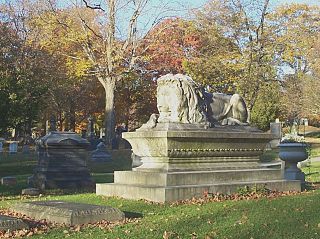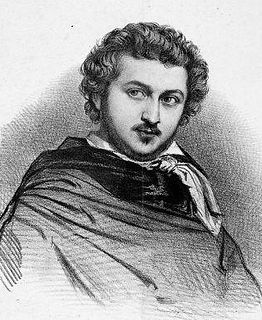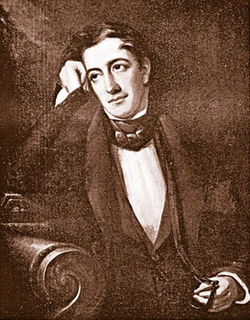 W
WAmy Duggan "Sister" Archer-Gilligan was a nursing home proprietor and serial killer from Windsor, Connecticut. She murdered at least five people by poisoning them. One of her victims was her second husband, Michael Gilligan; the others were residents of her nursing home.
 W
WAmédé Ardoin was an American Louisiana Creole musician, known for his high singing voice and virtuosity on the Cajun accordion. He is credited by Louisiana music scholars with laying the groundwork for Creole music in the early 20th century, and wrote several songs now regarded as zydeco standards.
 W
WJames Cook Ayer was the wealthiest patent medicine businessman of his day.
 W
WCharles Edward Conder was an English-born painter, lithographer and designer. He emigrated to Australia and was a key figure in the Heidelberg School, arguably the beginning of a distinctively Australian tradition in Western art.
 W
WArthur Coningham was an Australian cricketer who played in one Ashes Test in Melbourne in 1894 in which he took a wicket with his very first ball. He took 2 for 17 in England's first innings but failed to add to that tally in the second.
 W
WJohn Conness was a first-generation Irish-American businessman who served as a U.S. Senator (1863–1869) from California during the American Civil War and the early years of Reconstruction. He introduced a bill to establish Yosemite National Park and voted to abolish slavery. His advocacy of Chinese immigration and civil rights cost him his constituency.
 W
WOhan Demirgian, also called Habib Bey, was an Egyptian-Armenian diplomat. He was the favorite of king Charles XV of Sweden.
 W
WHans Paul Bernhard Gierke was a German anatomist who was a native of Stettin.
 W
WRahel Hirsch was a German physician and professor at the Charité medical school in Berlin. In 1913 she became the first woman in the Kingdom of Prussia to be appointed a professor in medicine.
 W
WStella Hume was an Australian radio announcer who was an early figure in radio in South Australia.
 W
WCharles William Jones was a United States Senator from Florida. He abandoned the seat after an apparent onset of mental illness.
 W
WLouis-Antoine Jullien was a French conductor and composer of light music.
 W
WRichard Lawrence was an English-American house painter who was the first known person to attempt to assassinate a sitting President of the United States. Lawrence attempted to shoot President Andrew Jackson outside the United States Capitol on January 30, 1835. At trial, Lawrence was found not guilty by reason of insanity and spent the remainder of his life in insane asylums.
 W
WNikolaus Lenau was the nom de plume of Nikolaus Franz Niembsch Edler von Strehlenau, a German-language Austrian poet.
 W
WLewis Charles Levin was an American politician, Know Nothing, and anti-Catholic social activist of the 1840s and 1850s. He served three terms in the United States Congress, representing Pennsylvania's 1st District. Levin is considered to have been the first Jewish Congressman, although David Levy Yulee served as a territorial representative from Florida prior to Levin's entering Congress.
 W
WJohn Edward McCullough was an Irish-born American actor.
 W
WJesse Harding Pomeroy was a convicted American murderer and the youngest person in the history of the Commonwealth of Massachusetts to be convicted of murder in the first degree. He was found guilty by a jury trial held in the Supreme Judicial Court of Suffolk County in December 1874.
 W
WHenry Reed Rathbone was a United States military officer and diplomat who was present at the assassination of President Abraham Lincoln. Rathbone was sitting with his fiancée, Clara Harris, next to the President and his wife, Mary Todd Lincoln, when John Wilkes Booth entered the president's box at Ford's Theatre and fatally shot Lincoln in the head. When Rathbone attempted to prevent Booth from fleeing the scene, Booth stabbed and seriously wounded him.
 W
WRichard Redding, nicknamed "Cannonball", was an American pitcher, outfielder and manager in baseball's Negro leagues, regarded as perhaps the fastest pitcher in the history of black baseball. In his career, he played for the Philadelphia Giants, New York Lincoln Giants, Lincoln Stars, Indianapolis ABC's, Chicago American Giants, Brooklyn Royal Giants, and Bacharach Giants.
 W
WJan Theodoor van Rijswijck was a Flemish writer. He was an uncle of the politician Jan Van Rijswijck.
 W
WMaurice Rollinat was a French poet.
 W
WMonroe Salisbury was an American actor. He appeared on the stage for several years and then became an early film star.
 W
WEduard Schleich, known as The Younger was a German landscape painter.
 W
WJohn Flammang Schrank was a Bavarian-born saloonkeeper of New York who attempted to assassinate former U.S. President Theodore Roosevelt on October 14, 1912, in Milwaukee, Wisconsin. Roosevelt, who had left office three and a half years earlier, was running for president as a member of the Progressive Party. During a Roosevelt campaign speech in Milwaukee, Wisconsin, Schrank, who had been stalking him for weeks, shot Roosevelt once in the chest with a .38-caliber Colt Police Positive Special revolver. The 50-page text of his campaign speech folded over twice in Roosevelt's breast pocket and a metal glasses case slowed the bullet, saving his life. Schrank was immediately disarmed, captured and might have been lynched had Roosevelt not shouted for Schrank to remain unharmed.
 W
WFrano Supilo was a Croatian politician and journalist. He opposed the Austro-Hungarian domination of Europe prior to World War I. He participated in the debates leading to the formation of Yugoslavia as a member of the Yugoslav Committee. The author, R. A. Stradling, calls him "one of the most capable Croatian politicians ever."